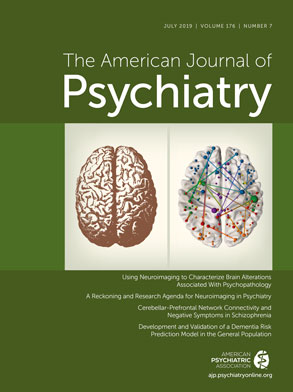Comment on the Relationship Between Common Variant Schizophrenia Liability and Number of Offspring in the UK Biobank
| Genetic Liability for Schizophreniaa | Sample Size for Outcome Data | Number of Childrenb | ||
|---|---|---|---|---|
| β | 95% CI | p | ||
| First release | 90,058 to 94,792 | 0.012 | 0.00003, 0.023 | 0.05 |
| Second release | 228,863 to 240,966 | –0.001 | –0.008, 0.006 | 0.81 |
| Full UK Biobank data | 318,921 to 335,758 | 0.003 | –0.003, 0.009 | 0.39 |
Acknowledgments
References
Information & Authors
Information
Published In
History
Keywords
Authors
Competing Interests
Funding Information
Metrics & Citations
Metrics
Citations
Export Citations
If you have the appropriate software installed, you can download article citation data to the citation manager of your choice. Simply select your manager software from the list below and click Download.
For more information or tips please see 'Downloading to a citation manager' in the Help menu.

